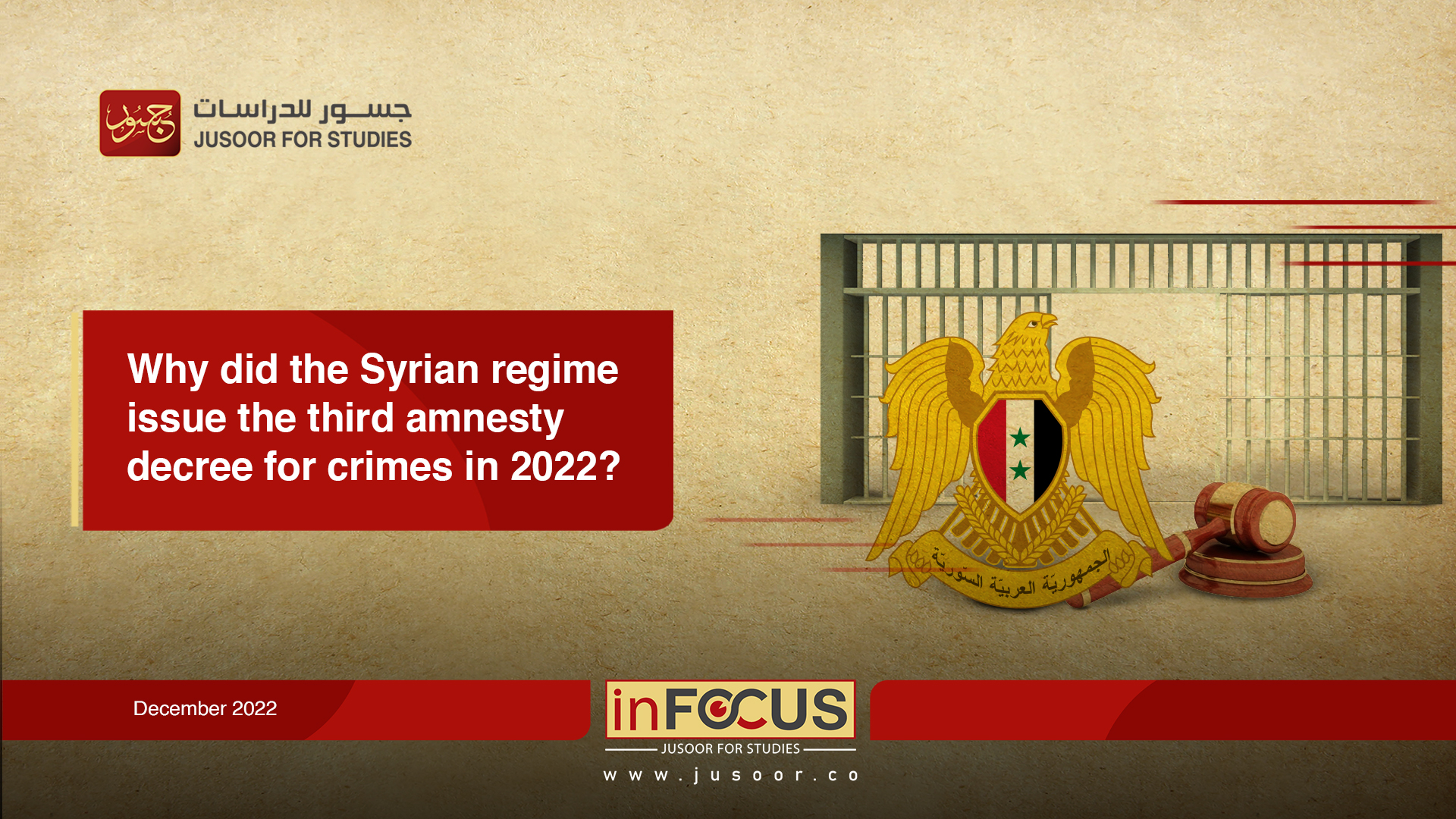Why did the Syrian regime issue the third amnesty decree for crimes in 2022?
On December 21, 2022, the Syrian regime issued a conditional amnesty that pardons draft dodgers. It is claimed that such an amnesty would help Syrians who escaped the mandatory military service, whether if they are still inside the country or abroad. It also applies to penalties of misdemeanors.
This amnesty is the fifth in two years, and the third in 2022. It was preceded by Amnesty Decree No. (3), which also includes crimes of internal and external desertion from military service, in addition to Decree No. (7), which included amnesty for terrorist crimes committed before its issuance. Moreover, Decree No. (13) was issued in 2021, which included a large number of crimes. It was preceded by Decree No. (1).
This Decree No. (24) did not bring anything new in terms of the misdemeanors excluded from it, which are crimes that amnesty decrees used to exclude. Such misdemeanors are categorized into several groups, such as assaulting on private properties, those that affect honor and public morals, or whose punishment constitutes a resource for the state treasury. The above-mentioned categories of crimes are added to those related to having ties with enemies or connected to the military weapons.
It seems that the exception to the crimes stipulated in Law No. (20) of 2022 related to information crimes was the result of considering that this law had been issued recently, and consequently no rulings were issued based on its articles. Likewise, the exception to felonies came because Amnesty Decree No. (13) of 2021 included them to a large extent.
As a result, when comparing the new decree with the previous ones, it is noted that the regime makes the crimes covered by the amnesty more or less, according to the statistics of the Ministry of Justice. Usually, the amnesty includes a large number of lawsuits and judgments, so that it has an apparent effect in the courts in terms of the number of accused persons who are tried, or detainees who are released immediately after the amnesty's issuance.
In practice, the new decree intersects with Amnesty Decree No. (3) of 2022 in terms of crimes of internal and external desertion from military service, and also intersects with Amnesty Decree No. (7) of 2022 in terms of misdemeanors that are considered terrorist crimes. It also intersects with Amnesty Decree No. (13) of 2021, which included most crimes.
This means that the amnesty will neither have a tangible impact on the cases and the detainees nor represent any legal concession by the regime; because a large number of cases have not accumulated. This indicates that what is required is just to have a political impact without any significant change that could be touched by the Syrians.
As a bottom line, the regime is trying to make this political impact through the timing of the amnesty announcement; as it was issued on the same day that the regime’s interior minister met with the head of the UNHCR mission in Syria to discuss the mechanisms used to facilitate the return of the internally displaced persons (IDPs) and refugees. Issuing this amnesty also came in light of a suffocating economic crisis, and before the Christmas and New Year holidays that are usually given a special importance.
In other words, the regime wanted, by issuing the new amnesty decree, to send several internal and external messages. It wanted to show that it is willing not only to provide the necessary legal environment for the return of refugees, but also to make the population in the areas under its control feel that something good is coming. It might be also to ease the tension resulting from the economic crisis and the deterioration of living conditions, for which it insists on disclaiming responsibility.








